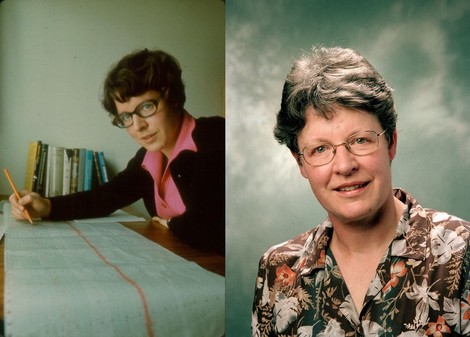Your podcast discovery platform
Curious minds select the most fascinating podcasts from around the world. Discover hand-piqd audio recommendations on your favorite topics.

piqer for: Global finds Doing Good
After ten years working in television news in Washington, DC, Geri quit the business to start a family and in 1997 founded GoodNewsNetwork.org, which quickly became the #1 site on Google for "good news". For more than 20 years, GNN.org has delivered positive news and inspiring stories from around the world as an antidote to the barrage of negativity in mainstream media. Featured on CBS News, BBC, Rolling Stone magazine, and NPR's All Things Considered, Geri was dubbed “The Good News Guru” by the Washington Post. From Health news to Heroes, World news to Animal rescues—and our new ‘Good Talks’ page, which aggregates the best motivational podcasts, GNN provides the ultimate grab bag of GOOD, with its daily dose of optimism and hope.
She Made The Discovery, But A Man Got The Nobel. A Half-Century Later, She’s Won A $3 Million Prize
A lone woman in the physics department at Cambridge University was responsible for one of the most important discoveries of the 20th century, but she hasn't been recognized until now.
The grad student, Jocelyn Bell Burnell, labored under the direction of a man, gazing at the skies behind a telescope, laying miles of cable to set up the array, and poring over the data for months.
Then one day, she noticed four gently pulsing sources of radio waves—and knew she'd discovered something important.
The 24-year-old from Northern Ireland had discovered pulsars: highly magnetized stars the size of San Francisco, but with the mass of the sun.
But for all her work, two men were given the Nobel Prize for Physics, instead, because students weren't eligible.
"I think he expected me to be angry,” Bell Burnell recalled. Yet she was delighted. She hadn't expected to be acknowledged — graduate students rarely were. But this was the first time the physics Nobel had ever been granted to someone studying the stars.
"Finally the committee recognized there was good physics in astronomy,” she said. “I recognized that it was a huge precedent, and I was rather proud that it was my stars that did it.
"She helped build the array she used to make the observation. She is the one who noticed it. She is the one who argued it's a real signal,” said Feryal Özel, an astrophysicist...
Nearly 50 years after her discovery, Burnell has been awarded the Breakthrough Prize in Fundamental Physics — along with $3 million. She is now one of only five people to have ever earned the prize, and stands alongside Stephen Hawking.
Best of all, she's using the prize money to create a scholarship for women and refugee grad students.
